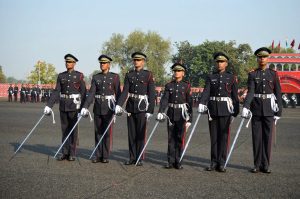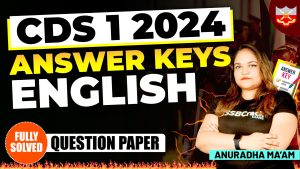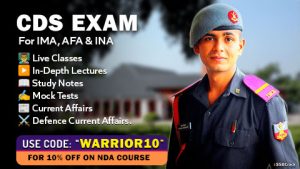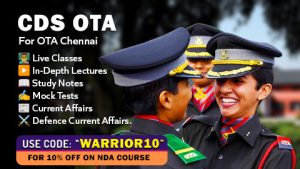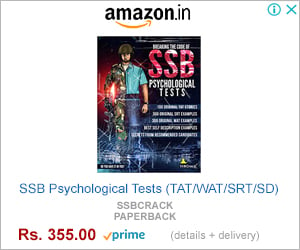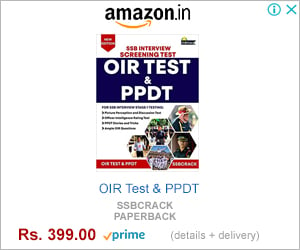In the realm of competitive exams like the Combined Defense Services (CDS), candidates often find themselves navigating through a plethora of topics, ranging from history to science. Among the subjects tested, chemistry holds a significant place, covering a diverse array of concepts including polymers and fertilizers. In the CDS 1 2024 examination, the importance of Multiple Choice Questions (MCQs) on polymers and fertilizers chemistry cannot be overstated. These questions serve not only as evaluative tools but also as gateways to understanding the practical applications of these chemical compounds in various military scenarios.
Polymers and Fertilizers in Military Context: Polymers, with their versatile properties, find extensive applications in military equipment and materials. From bulletproof vests to lightweight aircraft components, polymers contribute significantly to modern defense technology. Understanding the properties, synthesis methods, and applications of polymers is crucial for military personnel involved in material procurement, research, and development.
Importance of MCQs: MCQs offer a structured approach to assessing candidates’ understanding of polymers and fertilizers chemistry. Here are some key reasons why MCQs are invaluable in the CDS 1 2024 examination:
- Comprehensive Coverage: MCQs allow examiners to cover a wide range of topics within a limited timeframe. Candidates are tested on various aspects of polymer chemistry, including polymerization techniques, types of polymers, and their applications, as well as fertilizer composition, nutrient content, and agricultural impact.
- Application-Oriented Learning: By presenting real-world scenarios and practical applications, MCQs on polymers and fertilizers chemistry stimulate critical thinking and problem-solving skills. Candidates are required to analyze situations and apply their knowledge to make informed decisions, mirroring the challenges they may encounter in military operations.
- Time-Efficient Evaluation: In a competitive exam like CDS, time management is crucial. MCQs streamline the evaluation process, enabling efficient assessment of candidates’ proficiency in polymers and fertilizers chemistry. This format allows examiners to gauge candidates’ comprehension and retention of key concepts swiftly and accurately.
- Objective Assessment: MCQs provide an objective means of evaluation, minimizing subjectivity in grading. Each question has a clear correct answer, eliminating ambiguity and bias in assessment. This ensures fairness and transparency in the evaluation process, instilling confidence in candidates regarding the objectivity of their performance appraisal.
- Feedback and Improvement: MCQs offer immediate feedback to candidates, highlighting areas of strength and weakness. Through post-exam analysis, candidates can identify their knowledge gaps and focus on areas that require further study. This feedback loop facilitates continuous learning and improvement, enhancing candidates’ overall preparedness for future challenges.
Conclusion: In the context of the CDS 1 2024 examination, MCQs on polymers and fertilizers chemistry play a pivotal role in evaluating candidates’ understanding of these critical chemical compounds. Beyond assessment, MCQs foster application-oriented learning, stimulate critical thinking, and provide valuable feedback for improvement. Aspiring military personnel must recognize the significance of mastering polymers and fertilizers chemistry, not only for exam success but also for their future roles in defense and security.
Polymers And Fertilizers MCQs
- Which Of the Following Is Used to Make Non-stick Cookware?
A. Polystyrene
B. PVC
C. Polytetrafluoroethylene
D. More than one of the above
ANSWER: C - ‘BUNA-N’, A Famous Polymer, Is Used As _.
A. Fabric
B. Synthetic rubber
C. Non-stick cookware (plastics)
D. More than one of the above
ANSWER: B - Which Of the Following Polymer Is Used to Make Bullet Proof Glass?
A. Glyptal
B. PMMA
C. Teflon
D. More than one of the above
ANSWER: B - Monomers Used to Prepare Artificial Fibre Dacron Is
A. Ethylene glycol and Acrylonitrile
B. Ethylene glycol and Vinyl chloride
C. Ethylene glycol and Terephthalic Acid
D. More than one of the above
ANSWER: C - One Of the Characteristics of Polymer Is
A. High temperature stability
B. High mechanical strength
C. High elongation
D. Low hardness
ANSWER: C
For More MCQs On This Topic Refer To the video & Attached PDF





